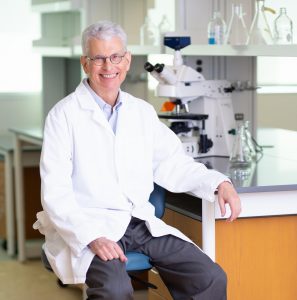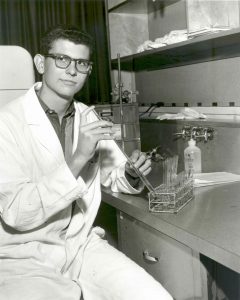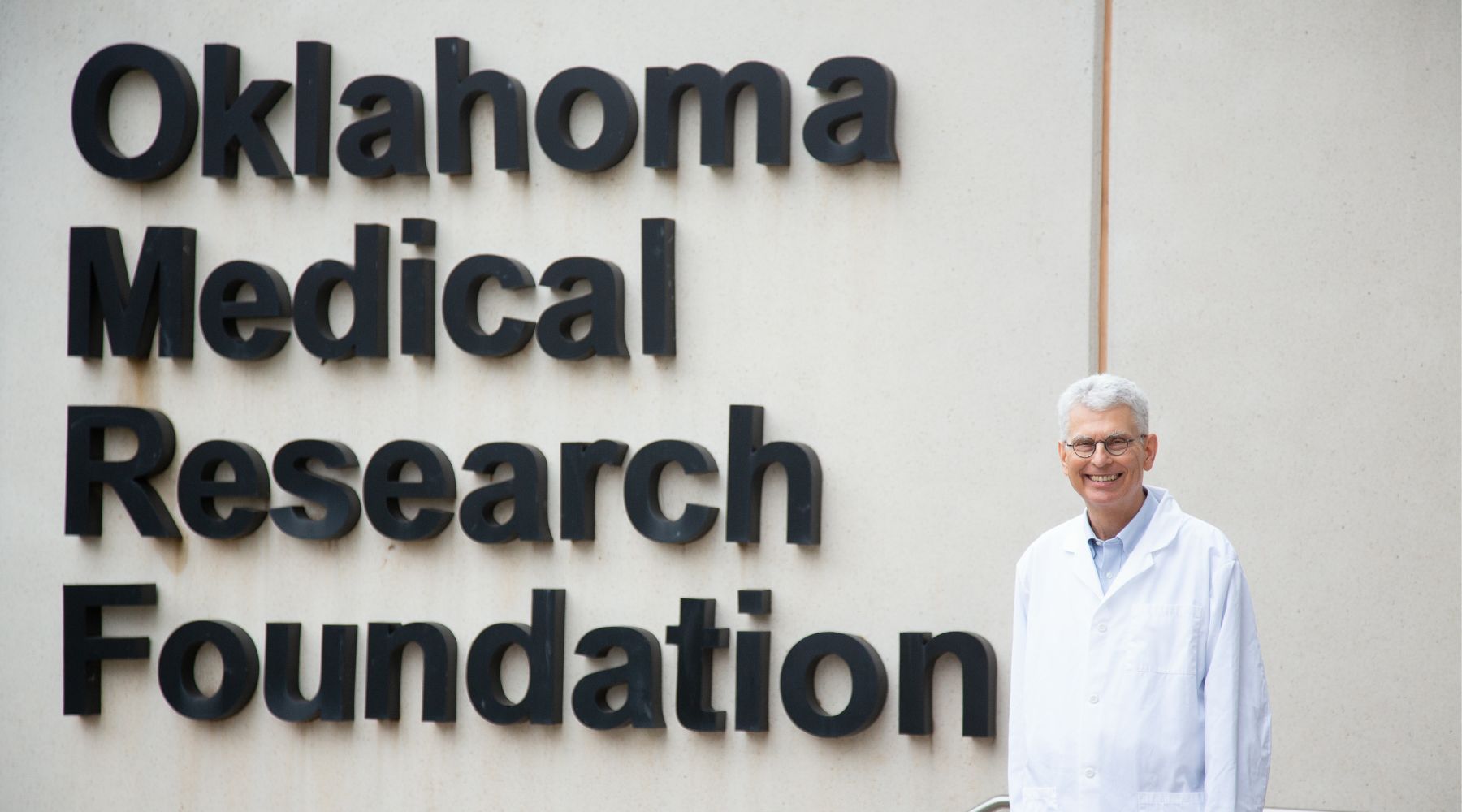As a physician who specialized in blood disorders, Dr. Rod McEver understood the toll that sickle cell disease exacts on the body. “I’ve treated patients with the disease,” he said. “Their suffering is extreme.”
As a scientist at OMRF, Rod found a way to help those patients. In his lab, he and his research team developed an experimental antibody to treat the pain crises that accompany sickle cell disease, a life-threatening blood disorder most prevalent in those of African or Hispanic descent. 
When the misshapen blood cells that give the illness its name get stuck in vessels and clog blood flow, it causes pain that can start anywhere in the body and last for weeks. “It feels like you’re getting hit, over and over and over and over,” said Danielle Jamison, one of the roughly 100,000 Americans who lives with sickle disease. “And it never stops.”
Rod’s antibody led to an investigational drug, and following two rounds of clinical trials, federal regulators gave the therapy the green light. In 2019, that drug, Adakveo, became the first FDA-approved treatment for the pain crises in sickle cell disease.
The medication, said the physician-scientist who led one of the clinical trials, “is an important advancement for people living with this very difficult condition.” Jamison couldn’t agree more. “I’m not in and out of the hospital going through the ups and downs of sickle cell so much. It’s made a huge difference for me. Life is so much better now.”
For Rod, seeing the fruits of his work used in hospitals and clinics represented the capstone of a career devoted to medical research. “It’s enormously satisfying to know you’ve developed a drug that helps patients,” he said.
This week, Rod marks a pair of major milestones. Today, he’s celebrating his 75th birthday. And tomorrow will be his first day of retirement (although we’re fortunate that he’ll stay in Oklahoma and continue in an emeritus role as a distinguished career scientist).
Rod has spent the past 35 years at OMRF: as a medical researcher, as the leader of the cardiovascular biology research program and, finally, as vice president of research. In each of those roles, he flourished.

His laboratory work not only led to a life-changing drug, but he also made a series of pioneering breakthroughs, including the discovery of a previously unknown protein. Those findings helped establish Oklahoma as a center of excellence in cardiovascular biology, and they enabled Rod to take on the role of colleague and mentor to the many junior scientists whose careers he’s helped guide.
In an era where people routinely cycle through jobs, Rod opted for a different path. With his scientific résumé, he undoubtedly had countless opportunities to leave Oklahoma for institutions with marquee names. Instead, the graduate of John Marshall High School chose to stay right here.
Thanks to that choice, Oklahoma and OMRF benefited not just from Rod’s scientific brilliance but from his kindness and wisdom. He’s been a steadfast and humble leader of our institution and our state’s scientific community. Still, if you’ve ever had the pleasure of meeting Rod (or reading his health columns), you’d never know he’s a research rock star.
We’ll miss our daily interchanges with Rod, where he generously shared his insights, intellect and endearing laugh. But Oklahoma and OMRF are all the richer for his many contributions. And so are patients everywhere.
__
Dr. Andrew Weyrich is president of the Oklahoma Medical Research Foundation, and Adam Cohen is OMRF’s senior vice president and general counsel. They can be reached at contact@omrf.org. Get On Your Health delivered to your inbox — sign up here.



